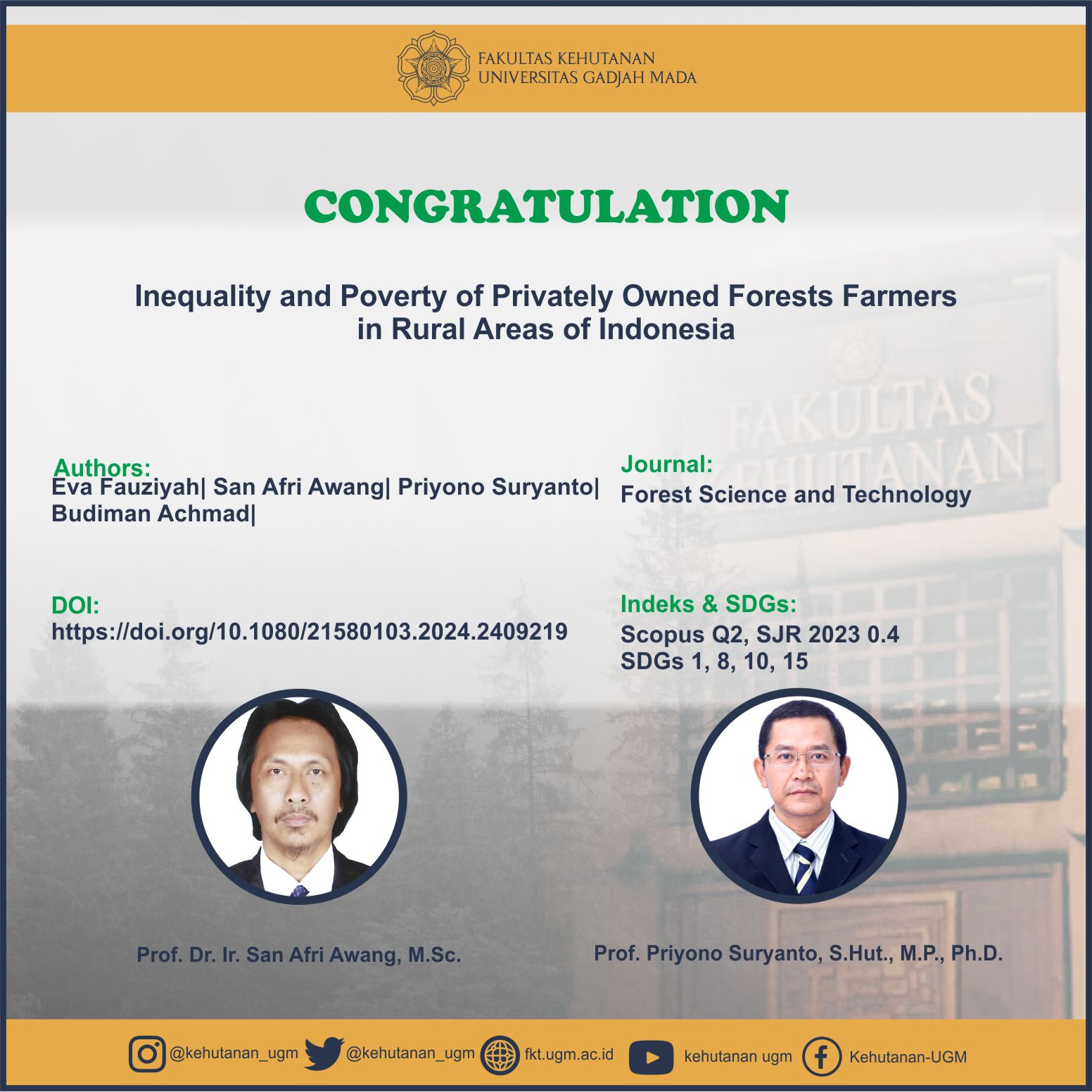
Abstract
Land limitation dramatically affects people with land-based livelihoods, such as farmers, and is often an obstacle to earning sufficient income for their family’s needs. Privately owned forests (POFs) are a land-based farming activity with a long history in Indonesian society. This study aimed to determine the socio-economic conditions, inequality, poverty, and livelihood dynamics of POF farmers. The research was conducted in three villages in Ciamis Regency, West Java Province, Indonesia. The research was conducted from February to May 2022 through structured, questionnaire-based interviews and in-depth interviews. The number of respondents was 170 POF farmers selected by simple random sampling in each village: 60 in Kalijaya village (18% of 325 farmers), 55 in Mekarjaya village (35% of 154 farmers), and 55 in Hujungtiwu village (37% of 148 farmers). The data obtained were processed using the Gini index and Poverty Line calculations, and analyzed descriptively. The results of this study show that POF farmers are dominated by productive age, long farming experience and low education. POF is the most dominant land use in the three research locations, but the income and contribution of POF are high only in Kalijaya village and lower in Mekarjaya and Hujungtiwu villages. Regression analysis indicates that land has a strong positive impact on farmers’ income. Land inequality was present in farmland, paddy fields, and POF land. The overall level of income and land inequality was less equitable in all locations. Land and income from POFs and non-POFs worked together to reduce POF farmers’ income and land inequality for POF farmers. Poverty was also more widespread among POF farmers in Mekarjaya and Hujungtiwu communities, where average land ownership was low. Farmers’ strategies to deal with this condition include continuing to farm the land but also diversifying their work both within and outside the village. Policymakers can utilise this information to promote or incentivize POF farmers to optimize POF management and improve their families’ living standards.
SDGs:
SDG 1: No Poverty
SDG 8: Decent Work and Economic Growth
SDG 10: Reduced Inequality
SDG 15: Life on Land
Link Dokumen:
Download
